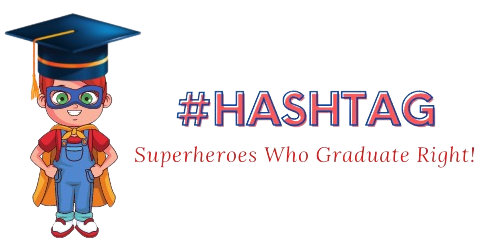
Instilling concentration skills in kids
Want to know the best way to develop concentration skills in kids?
HAVE YOU DRIVEN A CAR?
Sitting behind the wheel and taking control in the process of avoiding accidents, speed bumps, and taking turns… Everything about driving a car needs focus. It is all about engagement with the car and the road. A small mistake and the game is over.
So what do we do to keep ourselves clear and safe on the road?
We shift gear from neutral to fifth, and that makes it easy to maneuver the path. So why do we forget this thing in our lives, especially while we are studying? Generally, kids’ problems are staying focused while studying.
What happens…..
“When I am studying economics, I cannot focus because the world around me is slowly fading away”.
“I can’t focus on my studies as I worry a lot about failure. My brain feels overwhelmed and creates chaos, thus distraction happens”.
“Too many things are vying for my attention. Phone, T.V., games, doorbell…..”.
And many more reasons.
Do you know how our brain chooses to focus?
The brain is always on and taking information, which means it constantly has to pay attention to what to filter out. Neuroscientist calls this “selective attention” and it comes in two different forms.
TOP-DOWN ( voluntary focus)
This is the center of focus. The top-down focus is goal-oriented. It is responsible for seeing the bigger picture and using our experience to figure things out. Happens when—– trying to solve a difficult problem or studying for an exam.
BOTTOM-UP ( stimulus-driven)
When something around us grabs our attention we are suffering from Bottom-up focus. You can’t help but pay attention to what’s happening. Happens when —– when you are doing something and hear a sound, phrase, doorbell ringing etc.
To understand focus this phrase is perfect – “The elevator to success is out of order you’ll have to use the stairs, one step at a time” JOE GIRARD
So how can we focus?
DISCARD THE DIVERSION
Allowing our mind to wander at the scheduled time is the best approach that one can have if struggling to have FOCUS. Paul Seli, a psychologist at Harvard University, has differentiated between deliberate and accidental mind wandering. And according to him, only the accidental kind is bad.
Ever given a thought…
That is the task is simple our mind does not wander but instead, concentrates on the task and even if it wanders it is not going to affect the result of our performance. But on the other hand, if the task is tough our mind will wander and is definitely going to hamper results so why not let us schedule a time when wandering is allowed and thus no guilt and no effect?
TAKE A BREAK
Studies suggest that due to natural fluctuations in our cycle of alertness, we can concentrate for no longer than 90 mins and need at least 15 min break (works for concentration skills in kids) At times even a small break works fantastic and help us to get over our distraction.
( P.S. provided one is interested in doing that work).
CHEWING GUMS
Research shows that chewing gum increases oxygen flow to the part of the brain that is responsible for attention. How does it happen? It injects a bit of insulin into your blood that helps to give your brain an extra energy boost thus enhancing your long-term memory.
Or if said in other words chewing gum wakes us up ensuring that we are fully focused on the task.
RECORD YOURSELF
Weird?? But let me tell you it works. Why?
It helps you stay in the moment, creates accountability, and makes it easier for you to commit yourself to the task. Even if you are distracted, the knowledge that recording is happening will bring you back to the moment. And yes, of course, do not forget the main objective of the recording and stay honest.
LISTEN TO CLASSICAL MUSIC
According to Dr. Godkin, music can stimulate both sides of the brain, which is why it helps with focusing, improving memory and concentration skills in kids. Stay away from music with lyrics, as that is a distraction. Opt for listening to Brain.fm and Coffitivity, as the University of Chicago has designed them through research to enhance your focus patterns.
(Coffitivity taps into the understanding that spaces with about 70 decibels of constant ambient sound can improve and enhance creative cognition.)
Some studies have shown that willpower and focus are finite resources, meaning that the more you lose concentration, the harder it is to get back on track. It is very obvious to notice sounds and react to them. Blame it on our fight or flight response and our immediate association of it with danger; however, they must not distract us easily.
With resolute determination, one can craft intricate webs, replicating them time and again, much like a spider. So stay focused and keep shifting the gears from neutral to fifth.








